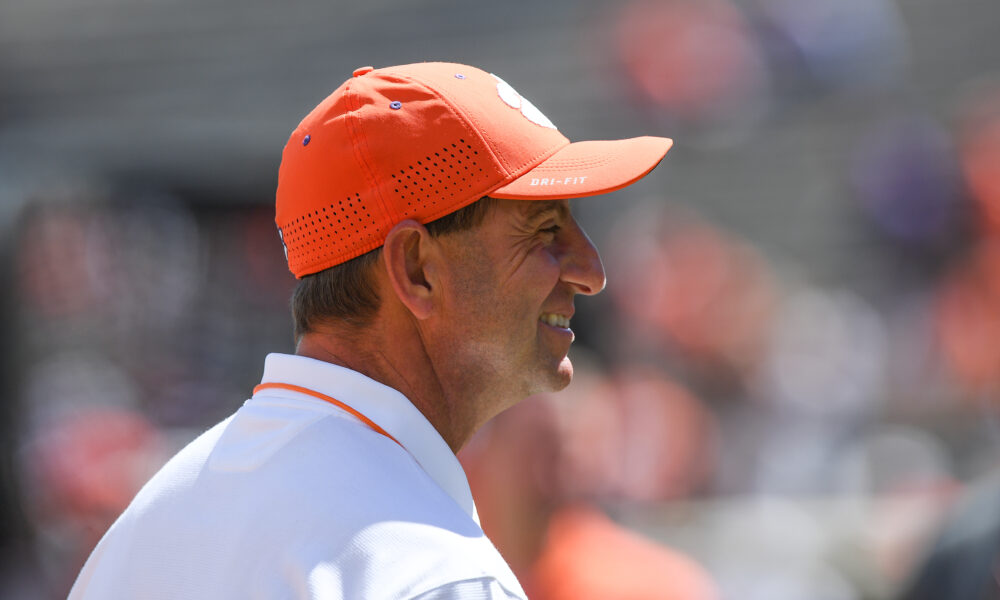A limited number of signed replica road signs from Cade Klubnik are available! Visit Clemson Variety & Frame or purchase online!
Dabo Swinney believes there are big changes on the horizon. Changes that will help Clemson tremendously.
Next year, once the House Settlement is finalized teams are expected to be able to start paying players directly through a revenue-sharing model. It is expected to be finalized ahead of the 2025 college football season.
Swinney has long maintained that this new model will be a game-changer for Clemson and the head coach doubled down on that notion during his weekly press conference on Tuesday.
“Nobody will have more money than Clemson. Nobody,” Swinney said. “For the first time ever, so that will be good.”
Teams are expected to be able to spend approximately $20-22M on paying players and that number will be capped, meaning no school can spend more than another. However, each school can choose how they spend that money and on which sports.
As previously reported by The Clemson Insider, Clemson plans to fully participate. And the school also plans to allocate more of that money towards football than some of its peers are planning to do. However, what is not yet clear, is how NIL plays into all of this.
According to Swinney, the House Settlement will include some guardrails regarding NIL that will prevent pay for play and should help to even the playing field. It will be overseen by a third party and not the NCAA.
“The NIL is going to be different come July,” Swinney said. “Right now there is no standard. But come July, there is going to have to be a standard. That’s why we went out and hired ESM (Everett Sports Marketing). That’s one of the best sports marketing agencies in the entire country, And we pay the fee. NIL will still be there, and it can stack on top of the rev-share, but it has to meet a standard. And if it doesn’t meet a standard, then you’re going to get penalized, and they’re going to take money from your rev-share.”
“It’s not just pay-for-play anymore. It’s going to be true NIL. And again, it will have to meet an actual standard. And again, all third party regulated, which I think is going to be really, really good for everyone.”
With these new guidelines in the settlement aimed at slowing down some of the chaos that NIL has created since its inception in 2021, there are bound to be more lawsuits similar to the one that led to the House Settlement.
When asked if he believed these guardrails would hold up in court, Swinney admitted that was something he could not answer. However, he fully believes there is some stabilization on the way. At least for the next decade.
“I have no idea, that was all part of the settlement,” Swinney said. “I guess in ten years they will figure that out. It’s ten year settlement. A gabillion dollars, a gazillion dollars was spent on the settlement. There’s two sides and that is what they agreed to. And it’s not the NCAA that’s regulating it, it’s a third-party just like the NFL has a third-party that manages this stuff. And if you are a penny under or a penny under, you’ve got a problem.”
“I don’t know how the big, bad wolf is going to manage it, I don’t know, but that’s what’s out there. I’m sure there are still things they are trying to figure out. Again, there’s a timeline, but yeah sure, there will be plenty of lawsuits over anything. That happens every day.”

